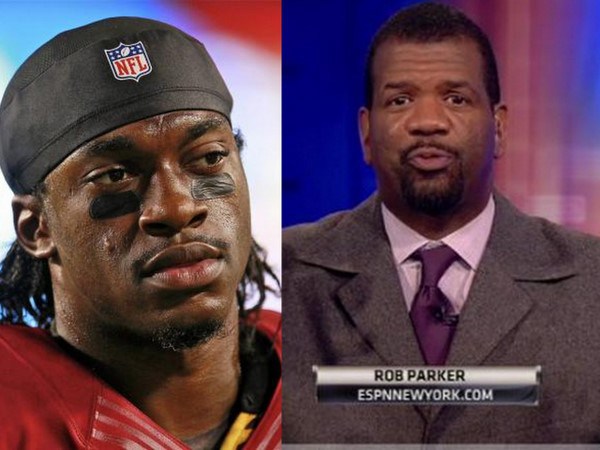
After a series of stories here on BOSSIP you all should be well acquainted with Rob Parker and his designation of Robert Griffin III as a “cornball brother” on an episode of ESPN2’s immensely popular “First Take” show last month. Parker was subsequently suspended from ESPN before being scrapped altogether, but in the meantime a new discourse has developed over what is and isn’t black enough.
In an essay titled “Some People Might Say I’m Not Black Enough,” writer Leonard Pitts Jr. explores how his own blackness might fall short in the eyes of Parker and others:
That explosion you hear is the sound of my mind, blown. I’m left second guessing my own blackness.
I mean, I listen to Bruce Springsteen, for crying out loud! There’s even a Dixie Chicks album on my iPod. And I read books sometimes, man — even when no one’s making me do it. Some of them are thick as bricks. Some aren’t even about African-American themes.
It gets worse. I have no natural rhythm, no criminal record and can correctly pronounce the word “ask.” I don’t curse nearly as much as I ought to. Oh, and I went and married my baby mama. My blackness is on life support.
Many of us have been taught that it is demeaning and delimiting when someone presumes to say who you are, how you will behave, what you think, what you like, and how intelligent you are, from the color of your skin. We have been taught that such behavior abridges the other person’s individuality.
But apparently, that’s only when white people do it to black people. When black people do it to black people, it’s called assessing your blackness, making sure you aren’t some “cornball brother.” How enlightening to learn that. It is even more enlightening to discover that we have such easy-peasy rubrics to go by. You can’t be black if you are a Republican? That means Colin Powell isn’t black. Neither, if published reports are to be believed, are rappers LL Cool J and 50 Cent. Who’d have thought? And if you can’t be black and have a white significant other … wow. There goes — what? Half? 90 percent? — of all the brothers in the NBA.
Poor Frederick Douglass has a double whammy. He was a Republican and had a white wife. Who’d have thought this former slave, one of the towering heroes of African-American history, wasn’t black enough? It is this kind of bold insight and trenchant analysis ESPN loses in sacking Rob Parker. What is the network thinking?
Parker, who also contributes commentary to WDIV television in Detroit, defended himself in an interview with the station that aired just before ESPN dropped the ax. He pronounced himself shocked by the fallout and suggested his comments were taken out of context. “You can’t be afraid to talk about race,” he said. He’s exactly right. In discussing race, we must be fearless. We must also be thoughtful. And informed. And exact. And alive to the ramifications of what we say.
Surely, Rob Parker knows this. Of if he didn’t before, he does now.
As for being black enough, he is probably a greater expert than he was before. He is, after all, a man out of work. It doesn’t get much blacker than that.
All that said, is it outdated to think this way? Does being open to dating outside of our race make us any less black? Parker himself noted that Griffin’s braids were in fact “very black” so what aspects of blackness override the cornball elements that might tip someone into not “real brother (sister)” territory?
Is it unrealistic to think this kind of divisiveness will ever come to an end for Blacks? What steps can we take to be more tolerant of each others differences as a community?








Comments
Bossip Comment Policy
Please read our Comment Policy before commenting.